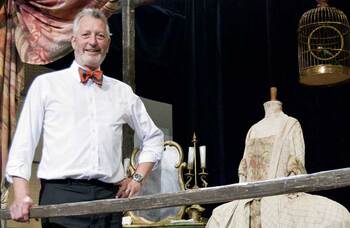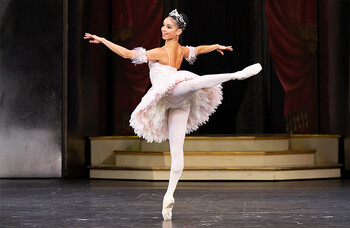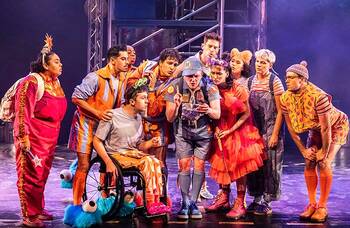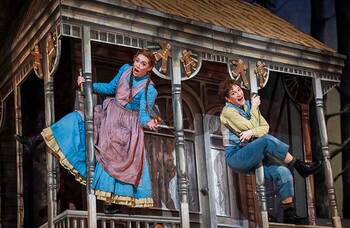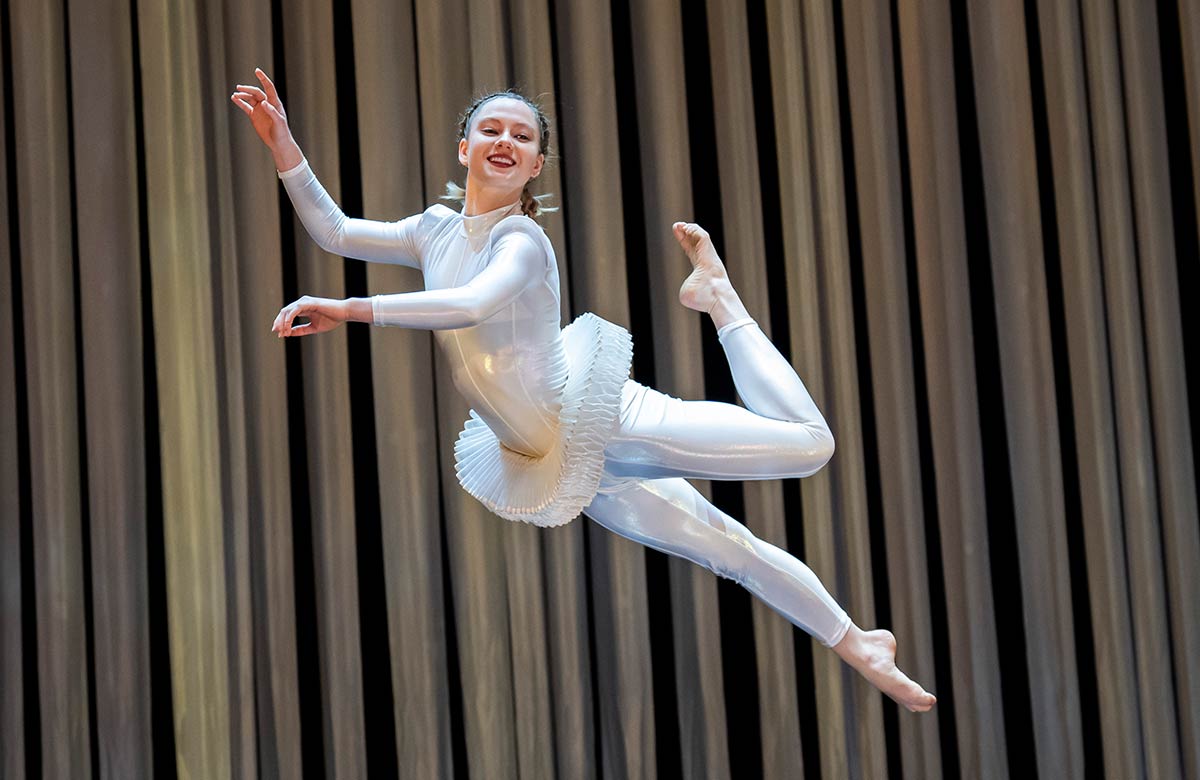Blaze of Glory! review



New work set among a fractured mining community affirms the healing power of music
David Hackbridge Johnson’s new large-scale work, presented by Welsh National Opera, sets a text by experienced librettist Emma Jenkins and places at its centre the distinctive phenomenon of the Welsh male choir. In the wrong hands, the subject could have been treated sentimentally and ended up being of purely local interest. Instead, politics, racism and feminism are sketched in without compromising the feel-good nature of the whole. Much of the piece is comic, but at its foundations lie humanity and heart.
The opera is set within a 1950s Welsh community that has suffered a recent mining disaster; among other things, this has decimated the local choir. It takes considerable persuasion for disheartened local choirmaster Dafydd Pugh to attempt to form a new ensemble, in particular, the persistence of accompanist (and eventually conductor) Nerys Price. Their burgeoning romance is handled sensitively but with humour. Fully inhabiting these lead roles are sterling tenor Jeffrey Lloyd-Roberts as Mr Pugh and top-of-the-range soprano Rebecca Evans as Miss Price.
Others leaving appreciable marks include Themba Mvula as Anthony, a young African-American GI who has settled in the town and brought contemporary American pop idioms with him – indeed, Johnson makes regular use of 1950s pop styles, integrating them skilfully into his traditional and equally period classical score. Feargal Mostyn-Williams as “bearded alto” Bryn Bevan, with his distinctive countertenor, enables the choir to tackle an Alpine yodelling song at a local eisteddfod, even if Mark Llewelyn Evans’ confrontational rival choirmaster Caradog Probert has them disqualified.
Young tenor Emlyn, meanwhile, is poached by Covent Garden – by no means an unknown trajectory, and certainly a credible one, given Adam Gilbert’s impressive voice. Helping bind the show together is a female trio (Angharad Morgan, Nafissatou Batu Daramy and Angharad Lyddon), whose joint appearances include a neat Andrews Sisters parody.
The stars of the show, though, are undoubtedly the justly famed Welsh National Opera Chorus, here augmented by members of local male-voice choirs, who lend a distinctive emotional charge to traditional hymns and folk songs. The fictional choir’s victorious entry at the Llangollen International Eisteddfod is utterly thrilling, as is the second-act finale.
Benefiting from the variety of Madeleine Boyd’s essentially simple sets, which glide seamlessly from one locale to another, Caroline Clegg’s staging unerringly hits the precise tone for scenes alternating comedy with heartache. That fluidity is made possible by the composer’s gift of pacing the drama with music that combines keen technical address with immediate appeal. Due to his skills and those of conductor Stephen Higgins, the orchestra never overwhelms the singers, but rather reinforces the opera’s message – that music possesses a unique ability to heal communities.
More Reviews
More Reviews
Recommended for you
Most Read
Across The Stage this weekYour subscription helps ensure our journalism can continue
Invest in The Stage today with a subscription starting at just £5.99

